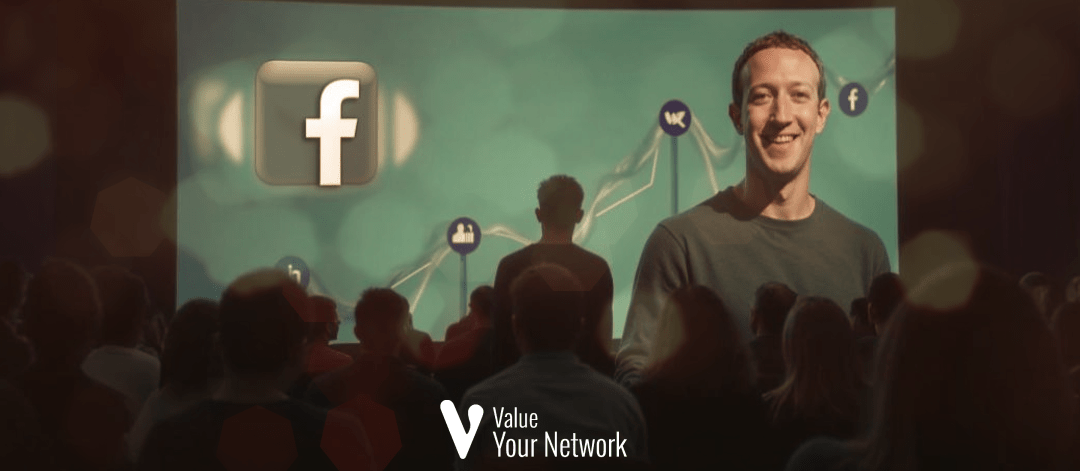Facebook original returns in 2025! Mark Zuckerberg wants to get back to basics to appeal to young people and relaunch its social network. But can this bold gamble really work? Discover the stakes and risks of this radical change.
For several years, Facebook original has evolved into an algorithm-driven platform, featuring sponsored content and AI-driven recommendations. But in 2025, Mark Zuckerberg is announcing a return to its roots. Why this strategic shift? What are the consequences for users and the future of the social network? Let's dive into the reasons that are driving Meta to go back.
Facebook original: a necessity to attract young people
One of the main challenges that Facebook faces is its aging demographic. Younger generations are gradually turning away from the social network in favor of more dynamic platforms like TikTok, Snapchat or Instagram. A Pew Research survey conducted in 2024 reveals that only 33 % of teenagers Americans (13-17 years old) still use Facebook, compared to 71 % in 2014.
Faced with this erosion of its user base, Mark Zuckerberg wants reinventing the original Facebook to capture the attention of new generations. At a meeting with investors, he said:
"I think there are a lot of opportunities to make Facebook much more culturally influential than it is today."
Yet Meta's previous attempts to appeal to young people have been failures. The program Facebook Campus, launched in 2020 to recreate a university atmosphere on the platform, closed its doors after only two years due to lack of interest. Similarly, Facebook has tried to integrate TikTok-inspired features, such as Reels, but these initiatives have not been enough to reverse the trend.
A return to the sources for a more authentic Facebook
Visit Facebook original was above all a space for exchange between friends and relatives. Users came there to share their life moments, interact with their social circles and discover content generated by their friends rather than by algorithms.
With the advent of sponsored content and the promotion of viral posts, this social dimension has gradually disappeared. Facebook has become an online advertising giant, where the posts of friends and family are often relegated to the background. This business model has certainly been profitable, but it has also contributed to the erosion of user engagement.
Zuckerberg therefore seems to want give Facebook back its original DNA by returning to more organic interactions. He mentioned an overhaul of the algorithm that would give more visibility to personal content rather than automatic recommendations.
A new moderation policy that changes everything
Alongside this development, Mark Zuckerberg announced a radical change in moderation policy Facebook. From January 2025, the platform will adopt an approach advocating the maximum freedom of expression.
The change is part of a move to break away from previous measures that were deemed too restrictive. Zuckerberg says strict moderation has silenced dissenting opinions and hampered user engagement. With the return to Facebook original, Meta intends to restore a freer climate, even if it means tolerating more controversy.
However, this decision is not unanimous. Many experts fear an explosion of hate speech and fake news, a problem already omnipresent on the network. By relaxing its rules, Facebook therefore runs the risk of encouraging a rise in problematic content.
The financial risks of this bold gamble
Coming back to the Facebook original, Meta is taking a financially risky path. In the short term, this shift could reduce the platform's advertising revenue.
Advertisers, concerned about preserving their image, may be reluctant to partner with a less controlled environment. Moreover, if the emphasis on personal content reduces the impact of algorithmic recommendations, this risks reduce the profitability of targeted advertising, which today constitute Facebook's main source of revenue.
Zuckerberg himself acknowledges that this transformation will not be without consequences:
"We know these changes will impact financial results in the short term, but they are essential to ensuring Facebook's sustainability."
In other words, Meta is betting on the future, hoping that a Facebook original more authentic and less artificial will eventually win back its lost users.
Facebook faces competition: a winning bet?
The success of this return to Facebook original will also depend on the platform's ability to compete with its competitors. However, the social media landscape has changed radically in recent years.
- TikTok continues to dominate among young people thanks to its short and interactive format.
- Snapchat maintains a loyal user base who value instant communication.
- Instagram, although owned by Meta, is more attractive to visual content creators and brands.
- Mastodon and Bluesky, decentralized alternatives, are gaining ground by offering models that are more respectful of personal data.
Faced with these actors, Facebook original will have to prove that it still has a place in the market. Will going back to basics be enough to win back young people? Or is it already too late to save Facebook from inevitable decline?
What you need to remember
Mark Zuckerberg is betting everything on a return to Facebook original to revive user engagement and appeal to younger generations again. This strategy involves an overhaul of the algorithm, more permissive moderation and a refocusing on social interactions.
But this bet is risky: competition is stronger than ever, and a relaxation of moderation could harm the network's image. Meta is therefore taking a huge financial risk, hoping that this transformation will bear fruit in the long term.
And you, do you think that this return to the sources could really save Facebook?

